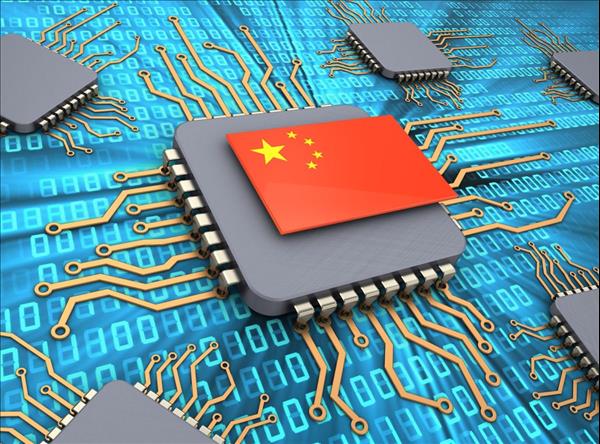(MENAFN- Asia Times) The Chinese government has decided to recruit and groom a team of strategic scientists and engineers after the United States launched new curbs to force American chip experts to quit Chinese fabs.
The Ministry of Industrial and Information (MIIT) on Tuesday in an suggested that China encourages top graduates to enter the micro-electronic sector and provides all possible resources and support to nurture them to become scientists and engineers.
Li Guojie, chief scientist of the Chinese Academy of Sciences (CAS), the first criteria of being a strategic scientist was patriotism. Li said strategic scientists should have the initiative to help the country achieve essential technological breakthroughs and the ability to lead top scientists and engineers.
The calls were made after the US announced earlier this month that US citizens would be banned from providing services to certain Chinese fabs from October 12. The curbs have reportedly forced some American Chinese chip experts to quit their jobs in China.
On August 9, United States President Joe Biden signed the CHIPS and Science Act to boost domestic semiconductor production and scientific research to enhance US competitiveness vis-a-vis China.
On August 12, the US Commerce Department's Bureau of Industry and Security (BIS) banned on shipping to China electronic design automation (EDA) software used in making the most cutting-edge 3-nanometer (nm) semiconductors.
Early last month, the BIS also started a new ban on exports of several high-end chips made by Nvidia and AMD to slow the growth of China's artificial intelligence sector. In its latest decision, it said US citizens would be forbidden to support the development or production of integrated circuits at certain chip fabs in China without a license from October 12.
Media reports said top American Chinese engineers including Gerald Yin, the chairman and general manager of AMEC, are facing a tough decision about whether they should stay in mainland China amid the US sanctions.
The MIIT on Tuesday released a document about how China would replenish its talent pool and achieve technological breakthroughs, particularly in the chip sector. The document was internally approved on October 10, only several days after the announcement of the US curbs.
The MIIT said it would unveil special policies to encourage the formation of innovative technological teams and the recruitment of top technology experts. It said it would allocate more resources to groom young scientists and engineers and set up new academies and research centers for them.
It said the government would provide small-and-medium-sized technology firms, particularly those in the core position in the industrial supply chains, with more resources to train their engineers. It said academic and research institutes should cap the time of non-academic or non-research work for their staff at no more than one day per week.
At the same time, academician Li Guojie wrote in an article that there are a lot of technological problems that need to be solved by top engineers who have a strategic mind, which refers to patriotism and the understanding of the global situation.
“Why China vows to groom a pipeline of strategic scientists is that there is an urgent need of experts who understand how to help it develop self-reliant technologies amid a severe international environment,” Li said without mentioning the US curbs.
Li said when he led a delegation of the High Performance Computer Research Center to visit the US in 1991, he was told by a well-known American Chinese scientist that China should focus on the research of accessories such as mouses, keyboards and monitors, instead of aiming at high performance computers.
He said from that time, he had realised that China should not rely on scientists who lacked patriotism and lived overseas for a long time.
He praised the deceased SMIC Chairman Jiang Shangzhou for having contributed his whole life to bring foreign chip technologies into China. He also said it was Jiang who persuaded Gerald Yin, who had worked in Intel for many years, to return to China and help build up Shanghai's chip sector, which has an annual revenue of 200 billion yuan (US$27 billion).
Li also described Deng Jiaxian, a Chinese nuclear physicist and an academician of Chinese Academy of Sciences, as a strategic scientist for his contributions in China's high performance computer sector.
Li said:“Some people thought that when China could make the world's most advanced lithography, the development of its integrated circuit sector would not be limited by others. These people then urged the government to invest to make it at any cost.”
However, he said the CAS found that China did not have three-quarters of the 164 parts used in an extreme ultraviolet lithography, which can make 14nm chips. He said the country would not even be able to make a deep ultraviolet lithography, a five-generation older equipment, within a short time.
He said he had suggested that China should now focus on matured technologies, that is 28 to 55 nm chips, but he understood that such a recommendation would not attract a lot of eyeballs.
It is the first time that the CAS officially admitted that China had failed to make its own lithography.
In mid-July this year, Xiao Yaqing, China's minister of industry and information technology, was arrested for suspected violations of the Communist Party's discipline and laws. Zhao Weiguo, former president of Tsinghua Unigroup, a semiconductor maker, was also taken away by investigators for allegedly being involved in irregular procurement activities.
Besides, a dozen senior executives in the chip sector were under investigation.
Senior Chinese officials complained that the government has poured tens of billions of dollars into the semiconductor industry over the past decade but has not yet achieved the expected results, Bloomberg reported in August.
Follow Jeff Pao on Twitter at



















Comments
No comment